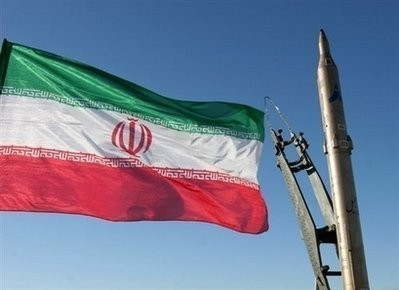Is the West Edging Closer to an Attack on Iran?

British armed forces are increasing their contingency planning as Teheran's nuclear enrichment programme is increasing tensions between the two countries, forcing Britain to consider the eventuality of military action against Iran, The Guardian reported.
Ahmadinejad's refusal to suspend all enrichment of uranium despite UN sanctions and warnings from the U.S. could lead to Washington planning to target key Iranian facilities by using missiles strikes.
The Guardian now reports that British officials have said they would support the U.S. actions against Iran, despite the coalition government being divided on the issue.
"In anticipation of a potential attack, British military planners are examining where best to deploy Royal Navy ships and submarines equipped with Tomahawk cruise missiles over the coming months as part of what would be an air- and sea-launched campaign." the article states.
With Gaddafi out of the way, Ahmadinejad has now come back at the forefront of the West's main contentious and problematic leader.
In the last few years emblematic Arab dictator and terrorists have fallen one after the other, including Saddam Hussein, Bin Laden.
Syria's Assad is also in a hot seat but appears determined to keep a tight grip on power despite months of anti-government protests and a crackdown that, according to the UN has killed more than 3,000 people.
The United Kingdom is prepared to militarily support a US strike against Teheran's nuclear enrichment programme, a British newspaper has reported, while in Israel Prime Minister Benjamin Netanyahu is believed to be pushing for a decisive strike against the Jewish state's arch-enemy.
London's Guardian newspaper reported that a US military offensive against Iran would take place before the next presidential elections in November 2012.
The U.S. and the UK have lost patience with Iran's continual defiance of sanctions and have decided that more the military option now needs to be seriously considered.
In 2010 a cyber-attack thought to have been engineered by the Americans and Israelis sabotaged half of the centrifuges used by the Iranian government for their uranium enrichment programme, but a military solution is now being discussed by strategists on both sides of the Atlantic.
Iran's aggressive anti-western stance has become more vitriolic in recent months with three alleged assassinations plots uncovered, including one against Saudi Arabia's ambassador to Washington, enraging the Obama administration.,
The Guardian outline a campaign against Iran using air power backed by naval assets, with Britain involved firing Tomahawk missiles from its warships and the RAF supporting the US assault.
"The British government believes that a dual track strategy of pressure and engagement is the best approach to address the threat from Iran's nuclear programme and avoid regional conflict. We want a negotiated solution - but all options should be kept on the table" An MoD spokesman said.
The revelations come amid concern that Iran now has enough enriched uranium for up to four nuclear weapons and could be able to have its own ballistic missile delivery system in two years.
In Israel, Prime Minister Netanyahu is urging his coaltion partners to support and attack, the Haaretz newspaper has reported.
The reports of Mr Netanyahu pushing for a military strike on Iran came after days of renewed public discussion among Israeli commentators about the possibility that the Jewish state would take unilateral military action against Iran.
Haaretz said that Mr Netanyahu and Mr Barak had already scored a significant win by convincing Foreign Minister Avigdor Lieberman to throw his support behind a strike.
But the newspaper cited the senior Israeli official as saying there was still "a small advantage" in the cabinet for those opposed to an attack.
© Copyright IBTimes 2025. All rights reserved.




















